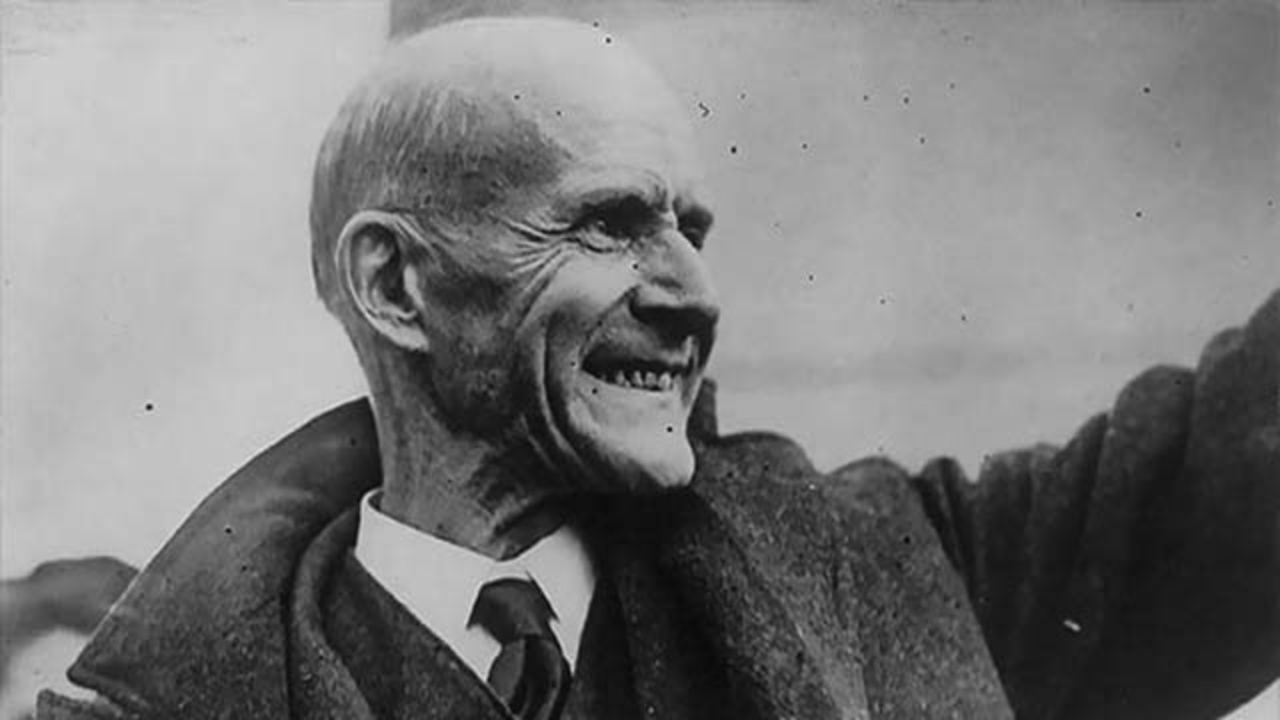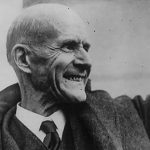Eugene Debs was a man who dedicated his life to the fight for the American worker. From the railyards of the Midwest to presidential politics, he became one of the most prominent and passionate voices for economic justice in U.S. history. While often described as a communist, he was, more accurately, the nation’s most beloved socialist, a radical who championed the idea that the economy should be run by and for the people, not by a handful of wealthy industrialists. His journey from a conventional trade unionist to a fiery critic of capitalism is a story of personal transformation forged in the heat of labor struggles and government repression.
From Railroad Worker to Radical Leader
Eugene Victor Debs was born in 1855 in Terre Haute, Indiana, to immigrant parents. His formal education ended when he was 14, and he went to work scraping paint in the railroad shops. He quickly rose to become a locomotive fireman, a tough job that involved shoveling coal into the engine’s firebox. This firsthand experience with the grueling and dangerous life of a railroad worker cemented his lifelong connection to the labor force. Even after he left the rails for a job at a grocery wholesaler, he remained deeply involved in the budding labor movement, becoming a charter member and then the national secretary of the Brotherhood of Locomotive Firemen.
You Might Like: A Detroit Dynasty: Mary Sheffield’s Family of Activists
In these early years, Eugene Debs was not a radical. He believed in temperance, hard work, and the possibility of cooperation between labor and capital. He even served as a Democratic city clerk in Terre Haute and was elected to the Indiana state legislature. However, the violent and often unfair battles between workers and powerful corporations began to shift his perspective. The pivotal moment came in 1894 when he was president of the American Railway Union (ARU), an industrial union he helped found that aimed to unite all railroad workers, regardless of their specific craft.
Since Mamdani has quoted US socialist hero Eugene V Debs, this is what he had to say about the two parties of the ruling class: pic.twitter.com/gCzkhMaAMc
— Jorge Martin ☭ (@marxistJorge) November 5, 2025
The ARU launched a massive boycott in support of striking workers at the Pullman Palace Car Company. The strike was crushed when President Grover Cleveland sent in federal troops, and Eugene Debs was arrested for defying a court injunction. He served six months in prison, and it was behind bars that his worldview fundamentally changed.
The Making of an American Socialist
Eugene Debs used his time in the Woodstock, Illinois, jail to read deeply about socialist theory. He emerged no longer a Democrat but a committed socialist, convinced that the capitalist system itself was the root cause of the poverty and inequality he witnessed. He came to believe that workers would never find justice until they controlled the means of production. As he later wrote, this period was a baptism, where “the class struggle was revealed” to him in the gleam of every bayonet used to break the Pullman Strike.
He quickly became the charismatic face of socialism in America. He was a spellbinding public speaker who used his oratorical skills to draw huge crowds. The Socialist Party of America made him its presidential candidate five times between 1900 and 1920. His campaigns were less about winning and more about spreading the gospel of socialism; he advocated for ideas that were considered radical at the time but are now widely accepted, such as women’s suffrage, social security, and the abolition of child labor. His most successful run was in 1920, when he garnered nearly a million votes, but he did so from a prison cell.
His second major imprisonment cemented his status as a martyr for free speech and the anti-war movement. In 1918, during World War I, Eugene Debs gave a speech in Canton, Ohio, denouncing the war and capitalism. For this, he was convicted under the Espionage Act for obstructing the war effort. Acting as his own attorney, he delivered a moving statement to the court, declaring, “While there is a lower class, I am in it, while there is a criminal element, I am of it, and while there is a soul in prison, I am not free.” The Supreme Court upheld his conviction, and he was sentenced to ten years in prison.
President Warren G. Harding commuted his sentence in 1921, but the years of harsh incarceration severely damaged his health. He died in 1926, but his legacy lived on, inspiring future generations of labor organizers and social reformers who would fight for the very worker protections he once championed.








